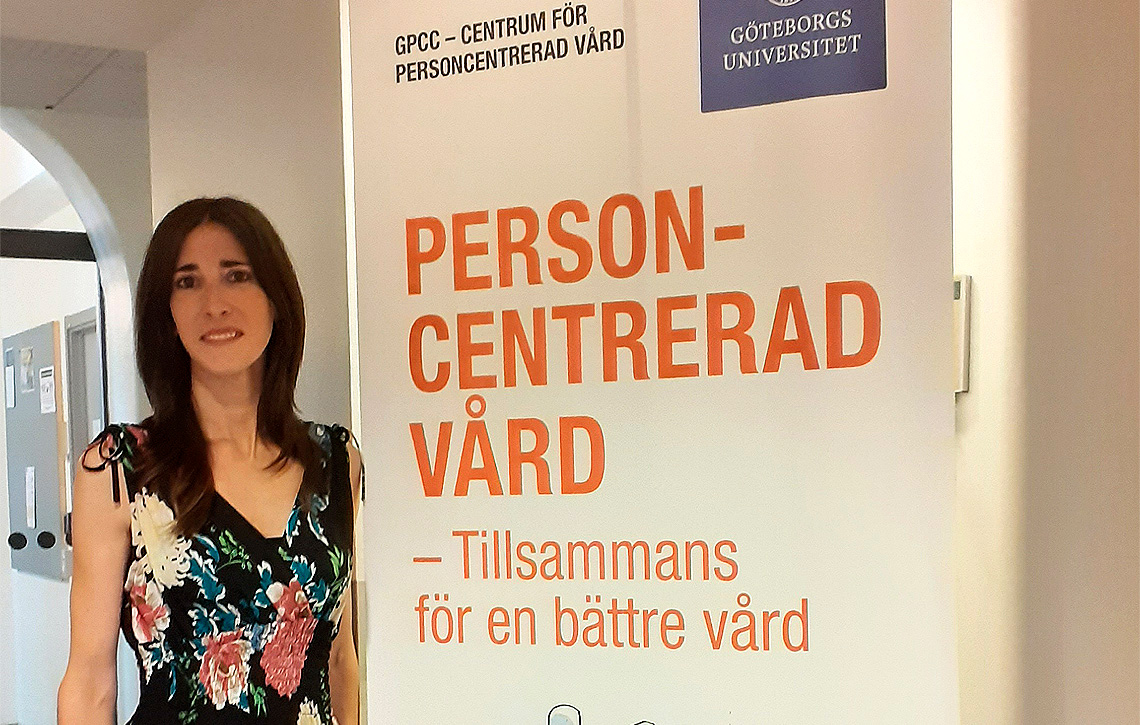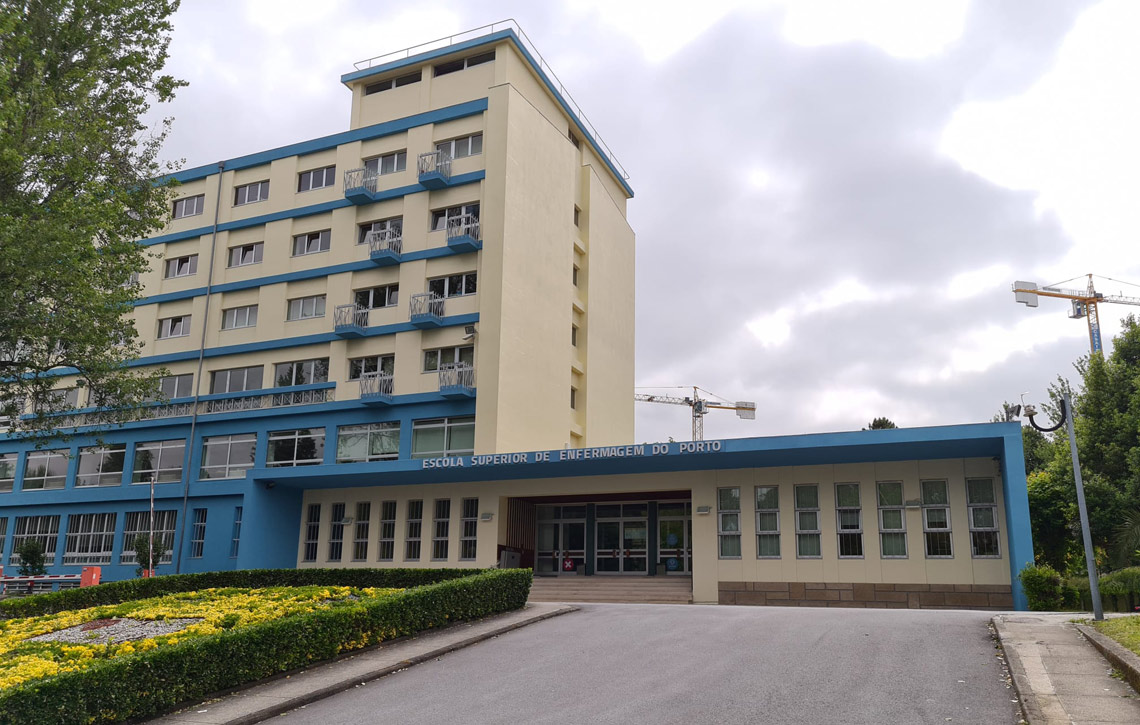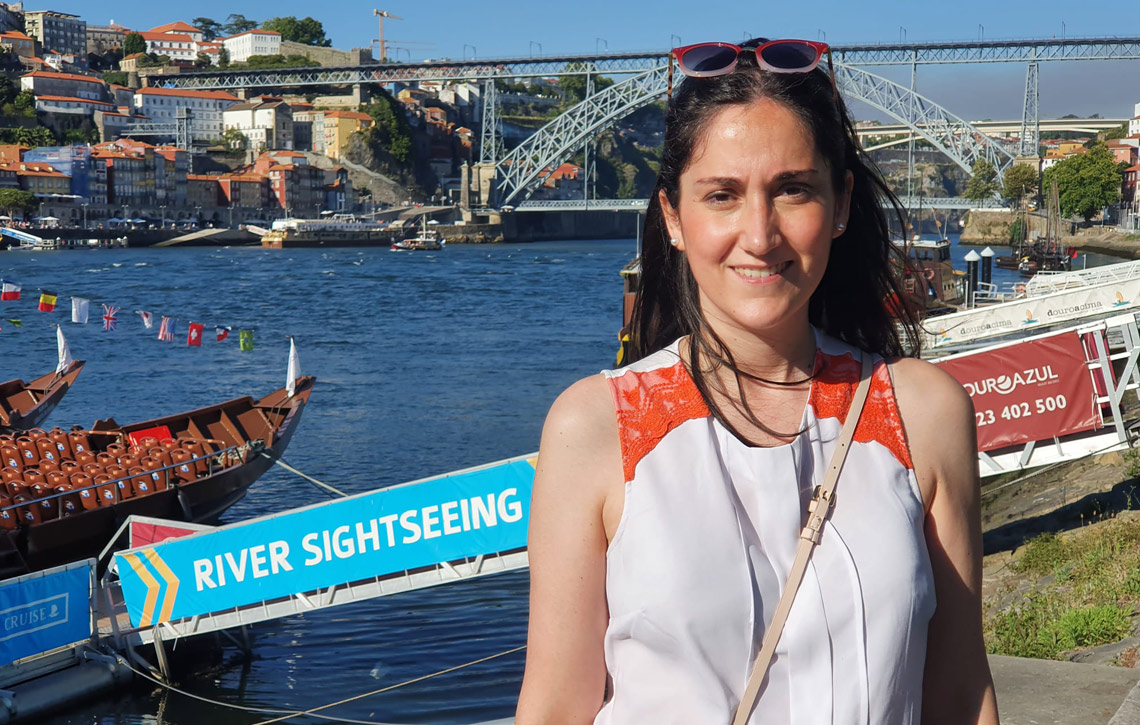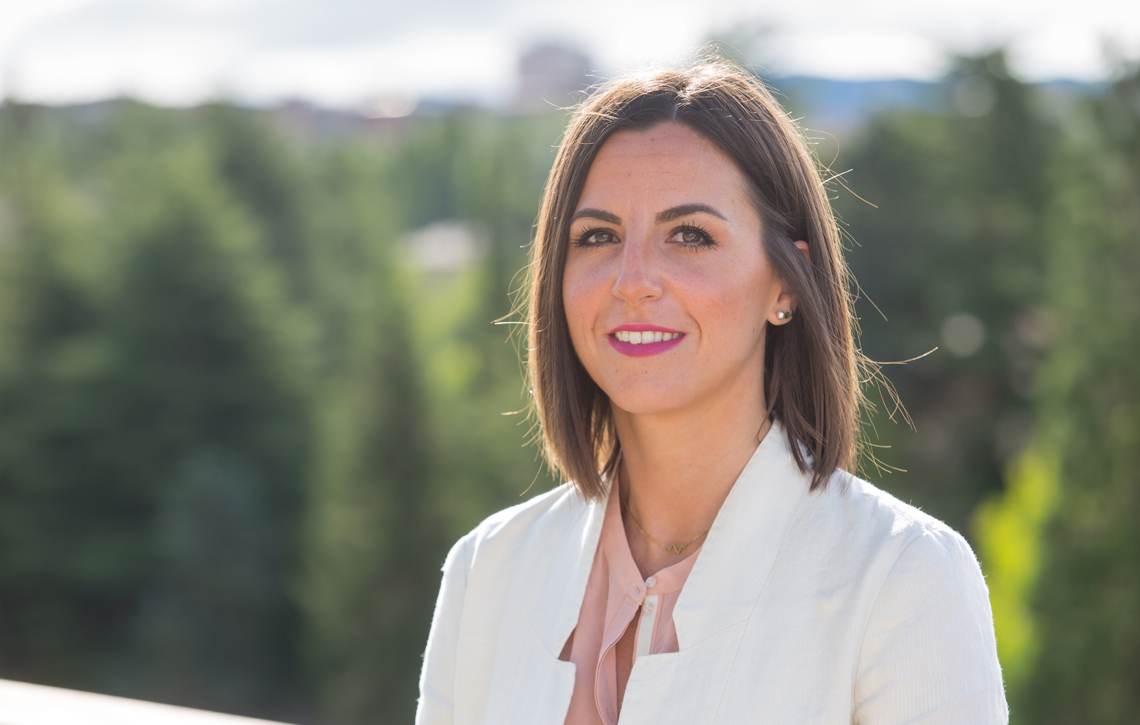In the picture
Maddi Olano: "Designing these interventions, which are already complex due to the nature of the phenomena we study, is not easy. So having the expertise of knowledge from a highly competitive centre with which more than 100 multidisciplinary researchers from all over the world collaborate was a great opportunity".
Maddi Olano - teacher of department of Nursing Care for Adult Patients in the School of Nursing of the University of Navarra - has spent the last five months living first-hand "this incredible experience, both professionally and staff, which requires you to integrate into a country (Sweden) with another language and another culture and to do so with my whole family (her husband and three children have moved with her to Gothenburg) which has left us with indelible memories".
She decided to do her postdoc - doctorate defended it in 2016 under the title degree scroll "Understanding what it means for a person to live with chronic heart failure" - at the Gothenburg Centre for Person-Centred Care (GPCC) at the University of Gothenburg. "For years I had been reading the results of research developing interventions for people with chronic heart failure and other chronic conditions from a person-centred care perspective approach . In our group of research the time had come to design interventions in this field and it was imperative to do so with the same approach as the backbone of our whole research".
"Designing these interventions, which are already complex due to the nature of the phenomena we study, is not easy. So having the expertise of knowledge from a highly competitive centre with which more than 100 multidisciplinary researchers from all over the world collaborate was a great opportunity," he adds.
During her stay at the Swedish campus , Maddi has reviewed the literature to learn more about the area study. "In addition, I have conducted interviews with researchers, healthcare professionals and people with chronic heart failure to get their views on the problem and the possible solution," he says. The final goal will be materialised in the design of a multicentre randomised controlled essay in partnership with the Swedish centre, with the purpose of accessing, later, to competitive calls of research that subsidise its implementation in Spain. "We hope that this intervention will reduce the impact of heart failure on the social dimension of people. An impact that we have observed in various research projects that we have already carried out, both in my thesis doctoral thesis and in subsequent projects," he stresses.

Maddi Olano l at the Gothenburg Centre for Person-Centred Care (GPCC) at the University of Gothenburg (Sweden).
Maddi has also "brought in her suitcase" different strategies to transfer to the classroom, to future nurses, "the approach and the knowledge of person-centred care, which sometimes is not easy to integrate into subjects with a more biomedical character, but it is essential to do so".
In addition, he has returned with numerous international contacts "that will be the starting point for joint projects and that will favour exchange networks from which other students and professors can benefit".



